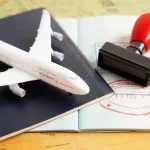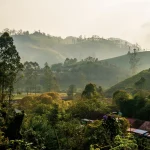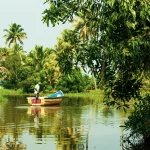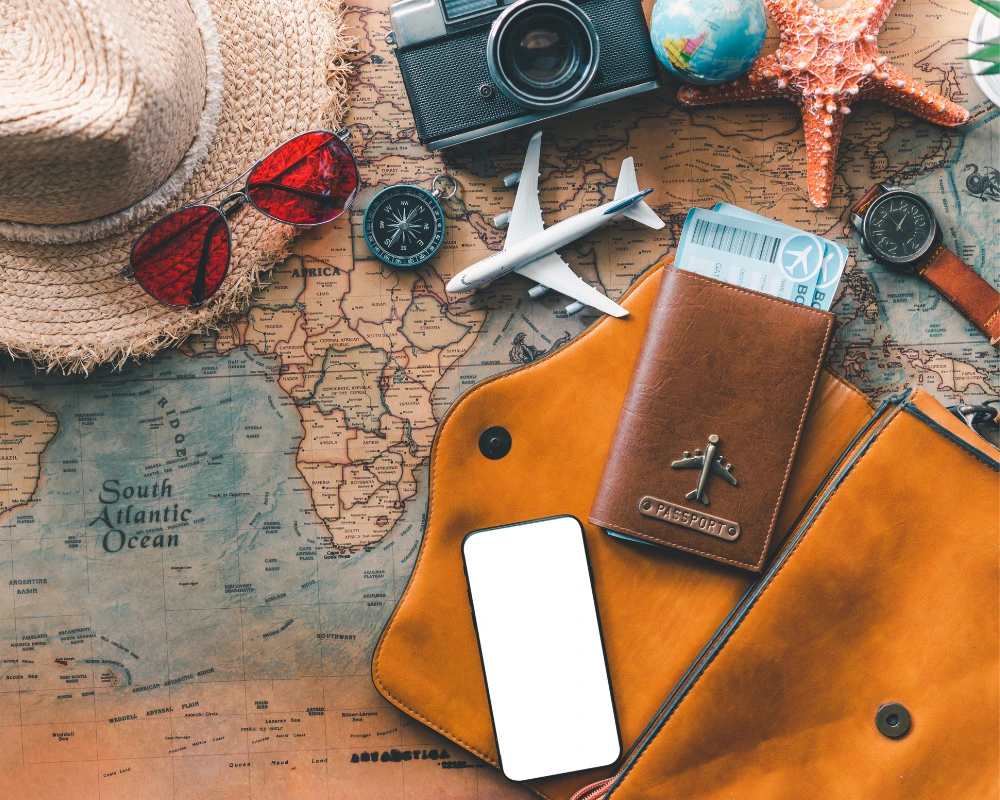
What Do I Need To Travel To India?
India as a travel destination is a multi-purpose place, from a deep relaxation destination, inspiring spaces and monuments, romance and philosophy of people daily life, a desert or jungle adventures place. The diversity of Indian tourism is immense, which it is attributed to its nation extensive territory and its ancient places. That is why before you face such adventure, it is important to take a time to think about the essentials before embarking on the trip.
A spectacular life worth remembering trip can be guaranteed with these essential tips before traveling, which are divided into three aspects, such as:
a. Right travel planning.
b. Prior preparation of the trip.
c. Good attitude to the unexpected.
In these three aspects you can summarize the success of your trip. As also, you can prevent any inconvenience in the process.
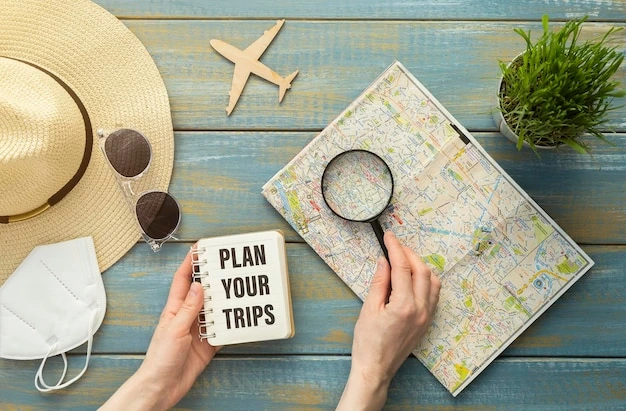
1. Take a Time for Planning
One of the requirements that will determine your planning time is the documentation process and its organization, so this is not a mess at the time of travel is advisable to have it planned and verified. In addition you may order this documentation in strategic places at the time of packaging. The first thing we must do before planning is to verify the documents you already have and request the ones you do not have yet.
- Passport: Your passport must have at least 180 days validity. Checking this passport details are very important for your trip. Since in the airports’ security check (regardless of where you come from) is imperative your passport is valid for 180 days minimum from the travel date. So, if your passport has 180 days left to expire (or is close to the 180 days limit), it is best to renew it, especially if you plan to stay more than two months. ‘A machine-readable passport valid for at least 180 days and with at least two blank pages is required…’ -www.worldtravelguide.net.
- Reservations: A complete itinerary with the best wonders of Asia can be only achieved by a professional agency, which can customized your tour to your desired destinations and needs. You can design and book your travel routes with us at estimated dates. These advance bookings are essential and necessary to perform the following procedures, as is the “Visa application” case, which require detailed dates information, destinations and hotel reservations. The itinerary design and reservations will not be any inconvenience for you, but it is always convenient to contact us in advance so that you can choose our best packages.
- Visa: All people that visit India need to have Indian visa. But relax, the document processing is very easy, the government of India has designed an electronic way to request and obtain it (only for a maximum stay of 60 days) it is called ‘e-Visa’. On the other hand, if your travel plan is more than 60 days you can request ‘regular visa’, although its process requires more time, you can also request it online. Each visa has different times to process your request. A very important fact is the visa must already have it accepted at least four days before your date of travel.
- Registered Traveller Programme: It is always better to prevent than to regret, that is why if ‘Ministry of Foreign Affairs’ of your country (or where you reside) has a traveler registration system, it is very convenient that you register on it and fill out all the information demanded regarding the trip you will make. Usually, this registry works as a preventive measure in case of any problem or accident in the travel destination. In this way, your country embassy can provide you full coverage by being informed of your visit to other countries.
- Travel Insurance: India has one the best hospitals care in the world, but many of its centers are private, which are usually very expensive and most of them are located in the main cities. So to avoid any medical attention requirement risk, it is suggested to have travel insurance before starting your adventure. Remember that ‘traveling without worries is the best option’. ’If you have private medical coverage in your country, it usually covers you abroad, so you should check what kind of coverage they provide you and what the procedure is in case of an emergency.’-www.sinmapa.net.
- Vaccination Card: For getting vaccinations and obtaining a certification you must go to the international vaccination center in your country, or a clinic depending on the information and prescriptions given by the embassy or the specialized vaccination center. In the same way, we leave you information of the necessary vaccines to travel to India according to the ‘CDC’:
All Travelers
You should be up to date on routine vaccinations while traveling to any destination. Some vaccines may also be required for travel.
- Routine Vaccines Make sure you are up-to-date on routine vaccines before every trip. These vaccines include measles-mumps-rubella (MMR) vaccine, diphtheria-tetanus-pertussis vaccine, varicella (chickenpox) vaccine, polio vaccine, and your yearly flu shot.
Most Travelers
Get travel vaccines and medicines because there is a risk of these diseases in the country you are visiting.
- Hepatitis A: CDC recommends this vaccine because you can get hepatitis A through contaminated food or water in India, regardless of where you are eating or staying.
- Typhoid: You can get typhoid through contaminated food or water in India. CDC recommends this vaccine for most travelers, especially if you are staying with friends or relatives, visiting smaller cities orrural areas, or if you are an adventurous eater.-https://wwwnc.cdc.gov/travel/destinations/traveler/none/india
- Credit and Debit Cards: Traveling to India and not buying at least a pair of sari or pashmina is super impossible. Since the crafts, clothing, food and attractions are some of the greatest temptations you will get from visit this exotic place. Although, most of these pleasures are paid in cash (mostly Rupees), it is very convenient to carry credit and / or debit cards as another form of payment when traveling India, because when you use them the percentage charged by banks is usually lower than a cash exchange rate. For example, you can use them to pay hotel reservations, some restaurants, as well as boutiques or specialty stores. Therefore, it is suggested to carry two credit cards (MasterCard, Visa or American Express) and at least one debit card (for use abroad). In this sense, you can choose which payment option is more convenient and safe on your trip, so first make sure which services or products you can pay with cards and to seize the opportunity. Important! Always check what you pay to avoid overcharges on your card.
2. Prior Preparation
All the requirements with a long issuing process are ready. Everything is under way and the travel date is approaching, the only thing that remains is to pack for beginning your trip. Well… This is the decisive step that will determine your trip! Everything you will carry in your suitcase and handbag is what you will have at hand at your destination place. For this reason, we summarize by items what you must organize before starting the trip.
About Documents
- Passport: Original passport and photocopies, in addition to scan it (digitized) and upload it on your email (preferably). In the travel process is important to have the original passport at hand, either in your purse or handbag for the time of check-in at the airport. However, upon arrival of your destination it is advisable to have the original passport stored in your room ( in a safe if the hotel offers one) or kept in your suitcase and carry a photocopy with you, while you are out.
- Visa: Original and photocopies of the visa. Although the “e-Visa” is electronic it is essential that you print it and carry it with your passport at the time of check-up at the airport. In the same way, it is important to be carried this document along with your passport at the arrival time.
- Travel insurance: Original and photocopies of this certificates. Usually, they have a validation code that you must show when needed. Upon your arrival, it is important to take the certificate along with your passport and visa.
- Vaccination card: Original, photocopies and preferably scanned (digitized). In most airports, it is one of the security check requirements. That is why it is important to have the original vaccination card along with the other relevant documents, as well as your passport, visa and travel insurance.
- 4×4 HD photography: At least 4 front-facing photos with light color background. Although, it is not mandatory. Any eventuality where you can use them to identify yourself, it may be present.
- About Money And Cards
- Money: There are many suggestions on how to keep safe money and cards when you travel, the most effective suggestions are is to use strategic locations, either a belt with a built-in purse that you always carry or a hidden place in your suitcase to protect your money and cards.
- Cards: Check your cards available credit, that means, if they are not close to reach the credit limit.
About Reservations
- Reservations: Photocopies and scanning (digitize them and upload them on your email) of each previous reservations made in hotels and / or restaurants, which you can have in hand at arrival time.
About Clothes
- Comfortable and Appropriate Clothing: The clothes you should wear depend a lot of the season and the places you will go, which determine how appropriate and comfortable you will be. Before you choose what clothes you will pack, you should take into account these four aspects: -Weather -Place -Culture -Size of your suitcase
- In most cases this decision is much easier for a man than a woman, but sometimes they end up equally failing when they encounter with the context due to misinformation, assuming they can dress as the same western way there.
Other things to take into account
- Basic medicines: Prepare your basic kit in an airtight plastic case, this can be composed of: analgesic, anti-inflammatory, anti-diarrheal, antibiotic, disposable wipes , antibacterial gel,ointment and bandages. For more information, this link describes a list of medicines banned in India: http://www.aidcoc.in/pdf/Banned_Drugs_in_India.pdf.
- Lotions: Most of India has tropical climate and high temperatures, so it is convenient to bring a sunscreen, and a mosquito repellent lotion/gel.
- Cell phone: Find out about ‘Roaming’ services offered by your phone company, also when you get to India you can buy a SIM card to enjoy internet, messaging and calls.
- Bottled water: You will not have to take it with you, but it is recommended that you consume only bottled water from your arrival, remember that your organism is as foreign as you and it is not adapted to the water that is served regularly in India, it is always better to avoid discomforts in the trip.
- Camera: Going to India and not capturing their beauty in pictures is a crime. When you are there, you will know how important it is to carry at least a phone with a good camera. And if you have a semi-professional camera is even better.
Good Attitude To The Unexpected
‘India is India’, if you look at it under western expectations, it is impossible to enjoy everything that this wonderful place have to offer you, everything you thought you knew about the world will not help when you experience this world of maharajas and maharanis. In addition, each of this vast territory places takes you to different experiences. Therefore a complete long single trip is not enough to see all the beauty, depth and discrepancy that defines India. The invitation is to:
- Look with ingenuity and enjoy the new and unexpected.
- Listen to the stories that distinguish each place, the people’s laugh and nature itself.
- Feel your inside connecting and moving with all ancient and majestic of each story.
- Savor the diversity of exotic flavors that characterize this land.

